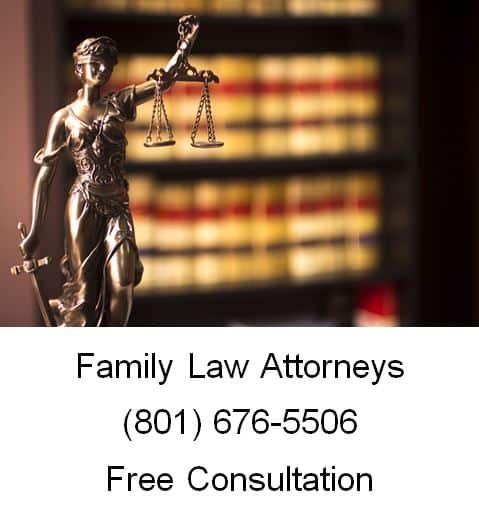
When you are buying real estate for development, you need to structure the purchase. The first thing that you need to have in place for the purchase is the funds. An experienced Riverton Utah real estate lawyer can help you structure your real estate purchase.
Traditionally, the purchaser of the single-family home supplies equity funds from his own resources. Since the individual home is most frequently purchased for use and occupancy, it is unusual to find more than one individual (or family) contributing equity funds. In practice, the purchaser, however, does not always provide these funds from his own resources. In transactions involving the purchase, for investment, of long term interests in land and improvements, the purchase price is usually so large that equity funds assume considerable proportions. Since the required amount may be beyond the resources of most individuals, a number of ways have been devised to pool individual resources. The most common is the organization of a corporation and the sale of stock. Where building operations are involved, the stock is frequently taken by architects, real estate brokers, contractors, and, in some instances, by those who supply part of the borrowed funds.
Other forms of association such as partnerships, syndicates, and trusts are also employed. A syndicate has been frequently used in sub division or allotment operations, as well as in dealings in acreage or accommodation land.
One type is represented by the organization of a trust. Title, in fee, to the land and improvements is taken by a trustee in accordance with the terms of a trust agreement. The trustee issues certificates of beneficial interest to participants, each of which carries rights to the occupancy and use of a specified apartment. The certificates of interest and the trust agreement also contain provision for payments by the holders to meet operating costs, taxes, and debt service and to cover other contingencies. Ordinarily, provision is made for a board of advisers, selected from the certificate holders, to advise the trustee, although final authority usually rests in him. Among the contingencies provided for are dissolution of the trust, and transfer of the certificate and its privileges. Operating rules are also included. This organization is complex and is used less than the more familiar corporate form, which has tax advantages in a number of states.
When the corporate form is employed, the corporation (instead of a trustee) holds title to the land and improvements in fee. Stock, in an agreed amount, is issued and made transferable only in blocks, each block representing a part of the equity proportionate to the value of the use of a particular apartment. Each block of stock carries with it the right to a proprietary lease of an assigned apartment. The conditions of the lease and the charter and by-laws of the corporation govern its operation and stipulate the rights and privileges of proprietary leaseholders as well as of stockholders. Assessments are made against lease-stockholders to meet the cost of operation, taxes, and debt service, and the stock stands as security for the payment of these assessments. Other provisions in the lease and by-laws cover the same contingencies as does the trust form of organization.
Mortgage Law
The practice of pledging property as security, essential in the acquisition of rights in land and improvements through borrowing, is as old and as ubiquitous as property itself.8 In its simplest form a pledge is signified by the pawn ticket; in real estate financing it has become elaborate, formal, and rigid.
The most common instrument to pledge an interest in land and improvements is known as a “mortgage.” In its earliest form in Anglo-Saxon communities, the mortgage was a deed, that is, it transferred to the creditor both title and possession or occupancy. This deed, however, contained a clause which provided that if the debtor faithfully and punctually performed his obligations, the title, possession, and occupancy pledged would revert to him and the entire transfer would be null and void. If the pledge was redeemed, the transaction was dead, and the debtor recovered his rights.
Today, the mortgage is essentially unchanged in form, but its content and effect have been radically modified. Now, as a result of legislation and court decision, any instrument the purpose of which, either expressed or reasonably implied, is to pledge rights in land and improvements as security for the performance of obligations, is a mortgage; and “once a mortgage, always a mortgage.” Even though the defeasance clause be purposely omitted, if the intent of the parties can reasonably be interpreted as that of pledging rights as security, the instrument and its effect are as though the defeasance clause were included.
In addition, the transaction no longer transfers use and occupancy. In effect, after the transaction, the debtor remains in possession the same as before; and the rights of the creditor become enforceable only upon the debtor’s default in meeting the obligations. In other words, the mortgage gives the creditor a lien against the rights of the debtor, enforceable only after default.
Through the years, the rights of the creditor have become further modified. He no longer comes into full possession of the rights of the debtor, even after default. Instead, he has only the right to demand that the pledged property be offered for sale to satisfy the obligation. If at the sale the obligation is satisfied, the creditor has no further interest. Unless he becomes the purchaser at the foreclosure sale, the interest of the creditor in the pledged property becomes extinguished with foreclosure and sale. He may have other recourse on a bond or note which the mortgage secures, but his rights under the mortgage are exhausted.
It must be emphasized that the interest of the creditor in the property pledged by the mortgage can be enforced only in the future; so long as the obligations of the debtor, under the terms of the agreement, are discharged, the latter has possession and use of the pledged property, free of any interference by the creditor, unless the agreement provides otherwise. Because of his interest, however, the creditor does have an equitable right which enables him to prevent dissipation of the pledged property; otherwise, its management remains in the hands of the debtor until he has defaulted.
Within the framework of such general rules of law or equity, so firmly established as accompaniments of the relationship of mortgagor and mortgagee that they cannot be waived even by agreement, the provisions of the mortgage instrument establish and determine the obligations of the debtor. They may also limit or enlarge the powers and privileges of the mortgagee. In general, any provision may be included by agreement which does not forfeit in advance basic rights of the mortgagor. These are protected as a matter of public policy because the debtor is sometimes a necessitous borrower. As such, he is protected against forfeiture in advance of the right to reclaim his pledge and against the extortion of an unconscionable rate of interest. The term of the loan (the time or times, place, and manner of its repayment), the rate of interest within the maximum, with reasonable penalties for not meeting payments on the due date, or allowances for payments made in advance of their due date, and readjustments or changes in the scheduled payments which may come into effect in certain specified contingencies, these and many other details may be provided for in an agreement embodied in the mortgage instrument.
Within the limitations of law, then, there is ample opportunity for adapting the mortgage instrument to the circumstances peculiar to each transaction. Once executed, its provisions can be changed only by mutual consent, but in its preparation the mortgage instrument is susceptible of great adaptability. Much of its rigidity is the unnecessary result of custom or the routine use of standardized provisions.
Straight-term mortgages
Provisions covering the term of the loan and the manner of repayment illustrate both the potential flexibility of the mortgage instrument and the persistence of customary practice. Traditionally, a term is fixed by agreement, at the end of which the whole loan falls due; accrued interest is payable at stated intervals during the term or in toto at the end. A mortgage containing these provisions is called a “straight-term” or a “straight” mortgage and is well adapted for a debtor who expects to pay the debt on or before its due date and for a lender who wishes to lend for a period approximately equal to the term agreed upon and to recover the whole sum at the end of that period.
Yet the straight-term mortgage is frequently used in transactions in which both the borrower and the lender recognize that the borrower is not likely to be able to pay the debt at the end of the term. Sometimes an agreement to extend the mortgage is part of such a straight-term mortgage. This agreement, however, is commonly tacit or verbal and is not enforceable at law. Thus, its use leaves some uncertainty or creates an advantage for one of the parties. Notwithstanding its inappropriateness, the use of the straight-term mortgage persists.
Partial-payment mortgages
The partial-payment mortgage, which is a variation of the straight term mortgage, provides that at specified intervals during the term a partial payment shall be made to reduce the debt. These payments usually fall due on annual, semi-annual, or quarterly dates, when interest is also due. Under the partial payment play, the sum of the payments on principal is less than the original debt, and a balance, called a “balloon payment,” becomes due at the end of the term.
This arrangement is appropriate when the borrower anticipates receipt of income corresponding to payments scheduled during the term and of a sum sufficient to meet the balloon payment at the end of the term, and where the lender, instead of keeping the original amount of funds outstanding for the entire term, prefers to recover a portion of them at stated intervals and the remainder at the end of the term. In practice, these conditions are seldom found. The balloon payment is usually considered by both parties to represent a sum which the borrower will not have provided and which the lender will not demand, or does not expect to receive, when the term expires. Both parties usually anticipate that this sum will be “refinanced.” Many lenders cling to the practice because it gives them the right at the end of the term to negotiate a different form of agreement for repayment of the balance or to demand its entire liquidation. Borrowers, on the other hand, may use this type of mortgage to borrow funds for other purposes and to have the use of a sizable proportion of the funds for the whole period of the loan.
Fully amortized mortgages
Another type of agreement, the amortized mortgage, is used more and more frequently in mortgage loans on homes. The most common terms embodied in this type of home mortgage provide for full reduction of the debt at maturity by fixed monthly payments. Payments are credited first to interest accumulated for the month at the agreed rate and the balance toward reduction of principal. Other terms provide for the payment of a fixed amount per month on principal and in addition the interest accrued for the month. There are also variations of these two basic types of full amortization agreements.
The monthly amortized mortgage is appropriate where the borrower receives his principal income monthly and where the repayment of the principal in small monthly sums will not result in dispersion of the lender’s principal or cause a loss because of waiting to recapture sufficient principal for further investment. Although not appropriate, therefore, for many individual lenders, it is especially suited to institutional lending. It gives a calculable liquidity expectation to the investment and some turnover of investment which facilitates adjustments of the portfolio to changes in the money market; it also maintains contact between borrower and lender, providing prompt notice of default or other stresses affecting the quality of the investment.
When you are raising money for a real estate purchase, never sign any document without having your Riverton Utah real estate lawyer review them.
Riverton Utah Real Estate Attorney Free Consultation
When you need help with a real estate law in Utah, please call Ascent Law LLC for your free consultation (801) 676-5506. We can help with evictions, quiet title actions, partition actions, and other real property litigation. We want to help you.
8833 S. Redwood Road, Suite C
West Jordan, Utah
84088 United States
Telephone: (801) 676-5506
from Michael Anderson https://www.ascentlawfirm.com/real-estate-lawyer-riverton-utah/
from
https://grum193.wordpress.com/2019/12/03/real-estate-lawyer-riverton-utah/





